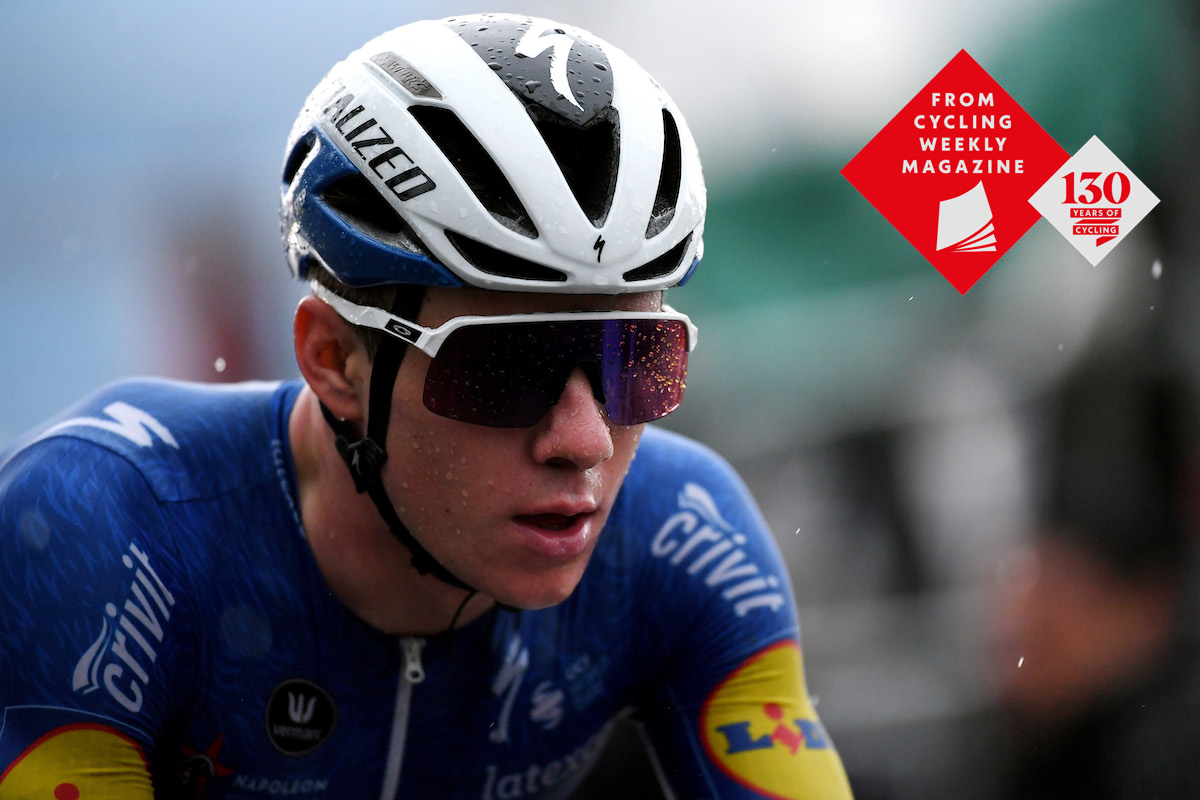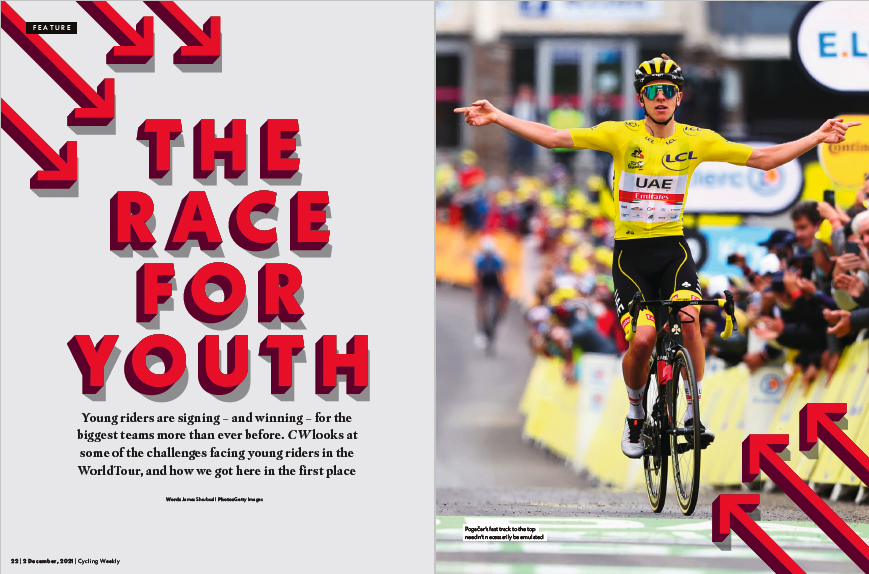The Race for Youth
Riders are signing for the biggest teams at ever younger ages. And they're winning too. How will this effect the peloton and those who can't win the Tour at 21?


The latest race content, interviews, features, reviews and expert buying guides, direct to your inbox!
You are now subscribed
Your newsletter sign-up was successful
"It's a weight on your shoulders, because you know you've got two years until you're the same age as someone who's won the Tour twice."
It's a thought-provoking view from the ranks offered up by British elite under-23 rider Tom Portsmouth. He's talking about Tadej Pogacar of course, and more widely the pressure created for riders of his age by seeing their peers win so big, so soon.
>>>>Subscribe to Cycling Weekly magazine and get pro features every week
Referencing another prodigious early twentysomething, 19-year-old Portsmouth adds: "I'm nearly a year and 11 months younger than Remco [Evenepoel]. So my ambition is to try and keep myself in that mindset of trying to achieve the level he's achieved at his age.
"I still believe in myself, I've got time," adds Portsmouth, who rides for the Belgian Carbonbike-Discar Academy team. "But then you also don't have time. It's a kind of paradox."
Less than 10 years ago, a teenager talking about not having time in a sport where the biggest races can still be won by riders in their late thirties might not have made sense.

But the last two or three years have ushered in a new paradigm — one of young hyper-talents and the biggest teams clamouring to sign even juniors that hint at future greatness.
The latest race content, interviews, features, reviews and expert buying guides, direct to your inbox!
Certainly in terms of age, it is as rider agent and Trinity Racing team boss Andrew McQuaid terms it, "a bit of a race to the bottom”. He adds: “These teams want the best riders and if they have to sign them at 17, 18, then that's what they'll do."
Conventional wisdom has long had it that a pro rider would reach their prime towards their late twenties, having amassed enough racing experience to create a bulletproof engine capable of taking on a leadership role in the Grand Tours or the longest one-dayers.
Riders in their early twenties and at the beginning of their careers were generally held to be fragile and easily broken if pushed too hard. A Grand Tour education at that age usually meant a year or two of gathering experience, being pulled out at around the halfway point and zero expectation. In 15 seasons from 1990 to 2005, only one 21-year-old — Russian Dmitri Zhadanov — finished the Tour de France.
But five have done so in the last four years, including Pogacar, who became the race's second youngest winner in history in 2020 (you have to go back to 1904 to find Henri Cornet, the only rider younger).
Read the full feature in the December 2 issue of Cycling Weekly magazine, on sale every Thursday. You can find CW in store, or order online. You can also subscribe, take advantage of our Christmas subs offer and get the magazine delivered every week.
After cutting his teeth on local and national newspapers, James began at Cycling Weekly as a sub-editor in 2000 when the current office was literally all fields.
Eventually becoming chief sub-editor, in 2016 he switched to the job of full-time writer, and covers news, racing and features.
He has worked at a variety of races, from the Classics to the Giro d'Italia – and this year will be his seventh Tour de France.
A lifelong cyclist and cycling fan, James's racing days (and most of his fitness) are now behind him. But he still rides regularly, both on the road and on the gravelly stuff.
